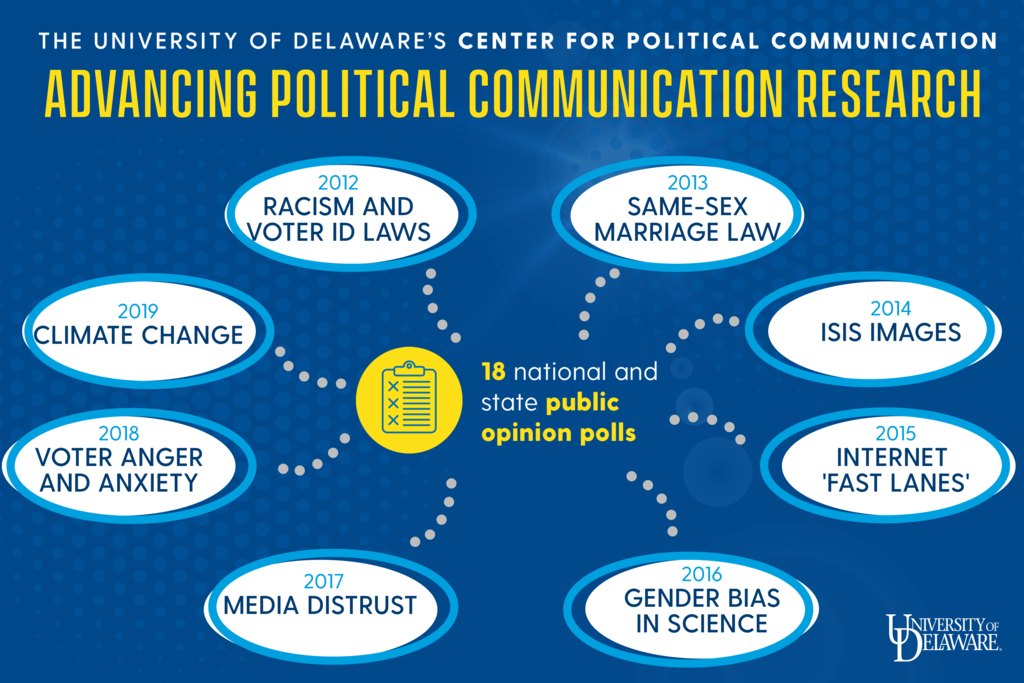Celebrating CPC Research : Celebrating 10 Years: Political Communication Research
Advancing political understanding, shaping public debate

By Eleni Finkelstein, University of Delaware junior and intern for the University of Delaware’s Center for Political Communication
Visit our “Celebrating 10 Years” page, which highlights how the CPC has advanced political understanding and civic engagement through research, scholarship, and events.
APRIL 10, 2020″To advance the understanding of politics, it’s important to bring attention to topics that help people think about politics in untraditional ways. A multidisciplinary approach ultimately strengthens the research, says Paul Brewer, who has led the research mission for the University of Delaware’s Center for Political Communication since 2011.
Since opening its doors in 2010, the CPC has sponsored 18 national and state public opinion polls, which has supported UD’s research of many issues that draw national attention. Brewer, who holds joint appointments as a professor in UD’s departments of Communication and Political Science and International Relations, is particularly proud of CPC-funded public opinion studies of voter ID laws, influence of late-night shows; and transgender rights, people, and candidates. “New issues come up, like net neutrality and transgender rights, which have always been brewing but now have more news attention.”
Brewer emphasizes a multidisciplinary approach to research, involving as many UD faculty and students as possible in a wide range of research topics and projects that advance the study of political communication. “A lot of projects have brought faculty and students together from different departments,” says Brewer. Many of these studies stem from partnerships between the faculties of the University of Delaware Department of Communication and the Department of Political Science and International Relations. Brewer has collaborated with Philip Edward Jones, a Harvard graduate of 2009 and UD political science professor with research interests in public opinion and political behavior, and Dr. David C. Wilson, who received his Ph.D. from Michigan State and is now a UD associate dean and political science professor. Wilson specializes in survey measurement, political communication, and public opinion on racial attitudes. Their studies can be accessed through the Polling and Research page of the CPC website.
The most rewarding part of his job is doing research that has made its way to a large audience and shaped public debate, as well as helping other students and faculty get involved and take part in research that has made an impact in the field of political communication. “It’s important to me that our ideas and findings are helping people understand politics – sometimes it makes people mad, but it contributes to public understanding of communication.”
In the past 10 years, a lot about politics has changed. “Politics has become more polarized and less civil, so the way we communicate about politics has changed as well.” But while politics has become more polarized, it has also become more apparent in our everyday lives”in television, pop culture, and social media.
Examining how people access and consume political information has fueled Brewer’s research for the past 10 years. In another 10 years, Brewer sees the CPC still involving students in research and promoting civil engagement, but the forms and topics of communication will surely change. “Right now we”re talking about media such as Twitter and Last Week Tonight, and topics such as the coronavirus and legalizing marijuana, but who knows what we”ll be looking at in 2030.”
